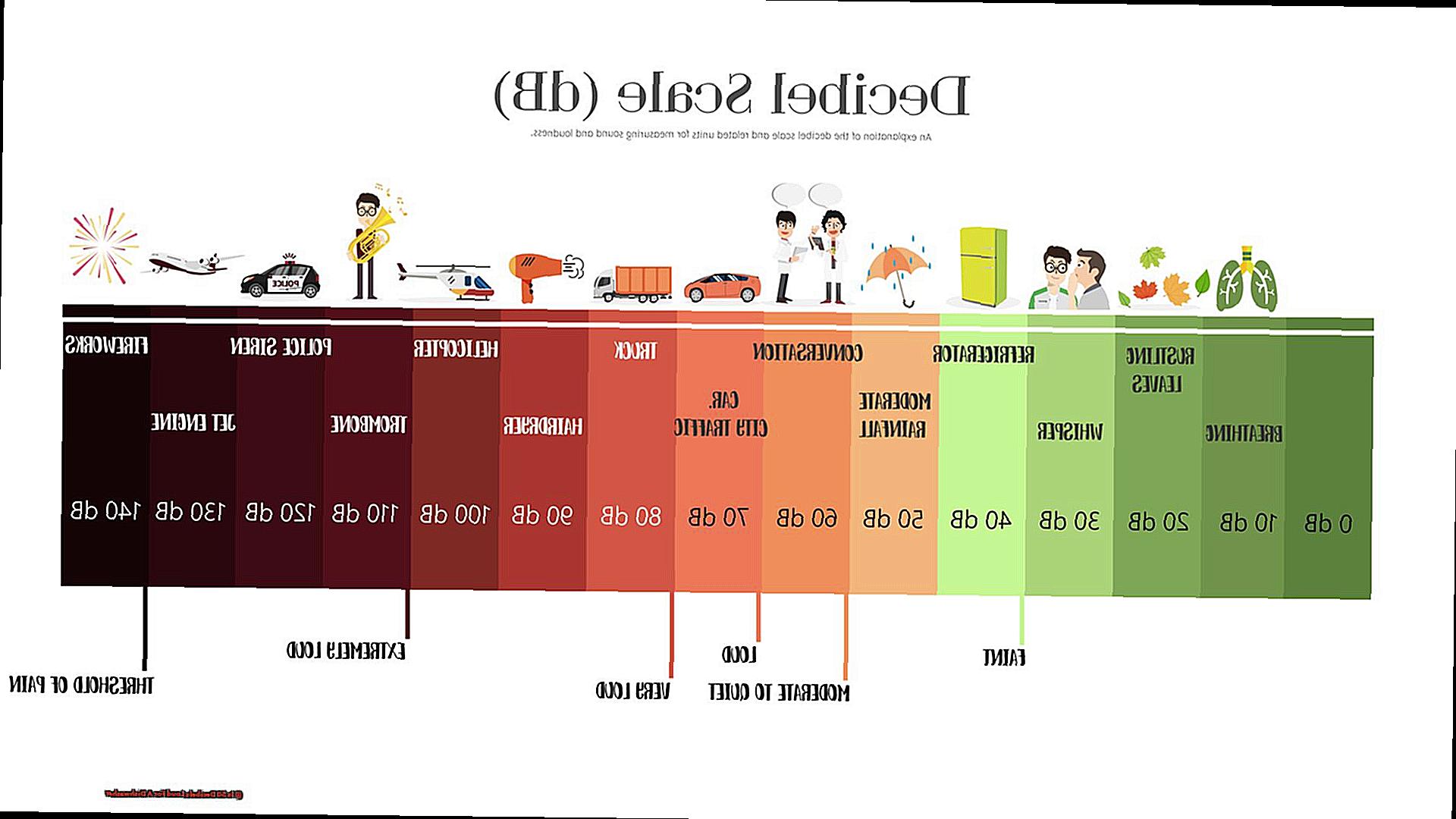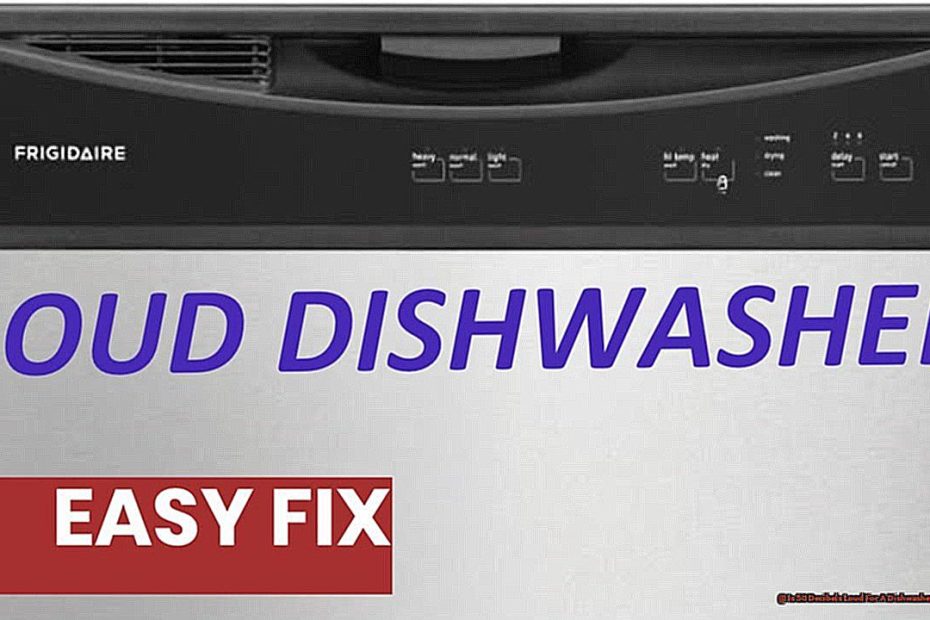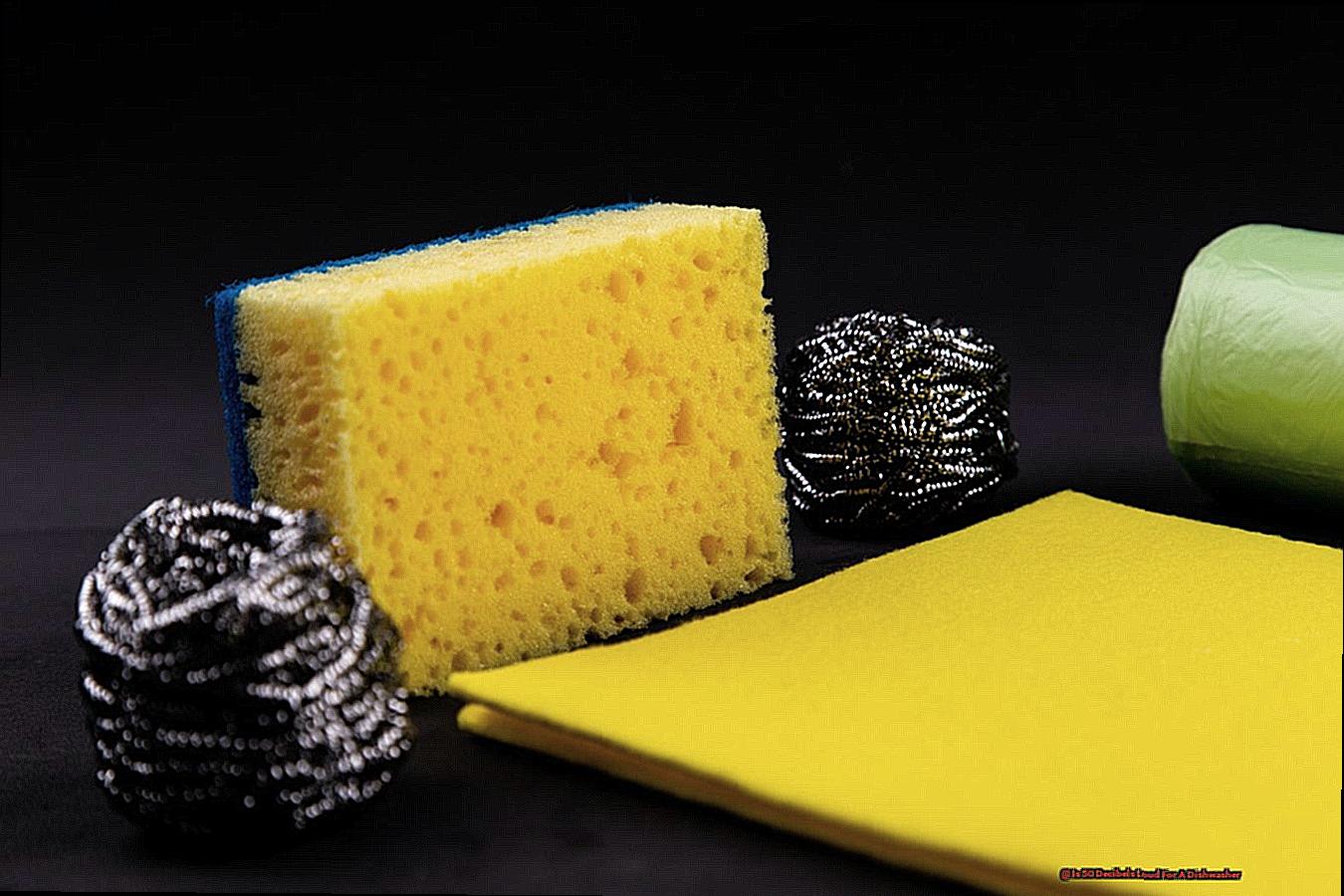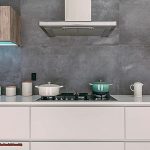Imagine this: you’ve just finished cooking a delicious meal and now it’s time to tackle the dreaded task of cleaning up. As you load the dishes into your trusty dishwasher, you hit start and suddenly…the noise level skyrockets. You can barely hear yourself think, let alone carry on a conversation. Sound all too familiar? Well, fear not my fellow dishwashing warriors, because today we are delving into the world of dishwasher decibels.
- Did you know that the average dishwasher operates at around 50 decibels?
- That’s about as loud as a quiet conversation or background music.
- But why does noise level even matter when it comes to dishwashers?
- For starters, no one wants to be shouting over their appliances during dinner parties.
- Plus, excessive noise can be a sign of an old or malfunctioning dishwasher.
- So what can you do if your dishwasher is too loud for comfort?
Join me as we embark on a journey through the realm of dishwasher decibels – from understanding their significance to finding a quieter option for your kitchen. Trust me, your ears (and dinner guests) will thank you. Let’s dive in.
Contents
Understanding Decibels
Decibels, also known as dB, are a unit of measurement utilized to measure the loudness of sound. It is a logarithmic scale that gauges the ratio of a sound wave’s pressure to the reference pressure of 20 micropascals. In simpler terms, it measures how loud a sound is compared to the quietest sound that humans can hear.
When it comes to the noise level produced by a dishwasher during operation, decibels are used to quantify its loudness. The higher the decibel rating, the louder the dishwasher will be. For instance, a dishwasher with a decibel rating of 60 dB will produce more sound compared to one with a rating of 50 dB.
Manufacturers of dishwashers use decibel ratings to assist consumers in understanding the loudness of their machines during use. A model with a lower decibel rating is deemed quieter and may be preferred by individuals who value a peaceful home environment. However, personal preferences and lifestyle habits also play a role in determining whether a specific decibel rating is too loud for someone.
Additionally, factors such as the layout of the kitchen and home can impact how much noise from the dishwasher is heard. For example, an open-concept kitchen may allow for more sound to travel throughout the house compared to a closed-off kitchen.
In conclusion, comprehending what decibels are and how they correspond to the loudness of a dishwasher can aid homeowners in making informed decisions when purchasing a new machine.
What is a 50 decibel dishwasher?
A 50 decibel dishwasher would be considered a quiet or average noise level for most household appliances. To gain a better understanding of how this noise level compares to other common appliances, let’s refer to the following table of decibel ratings for different household items:

| Appliance | Noise Level (in decibels) |
| Whisper-quiet | 0-0 dB |
| Quiet | 0-60 dB |
| Average/Typical Dishwasher | 60-70 dB |
| 50-Decibel Dishwasher | 50 dB |
| Average Refrigerator | 40-45 dB |
| Average Conversation at Home | 50-60 dB |
| Vacuum Cleaner | 70-80 dB |
From this table, it can be observed that a 50 decibel dishwasher falls within the range of an average conversation at home, which is generally considered to be a comfortable level of noise for most individuals. It is also quieter than a vacuum cleaner, which typically operates at 70-80 decibels.
Compared to other commonly used household appliances, a 50 decibel dishwasher is relatively quiet and would not cause significant disruptions in the home. Most manufacturers aim to keep their dishwasher models within this range as it offers a balance between efficient cleaning and quiet operation. However, it is important to note that individual models may vary and may not follow this general trend.
Is a 50 decibel dishwasher loud?
A dishwasher with a 50 decibel rating is often regarded as a moderate or unobtrusive noise level among household appliances. This falls within the range of an average conversation at home, making it a comfortable level for most individuals. In comparison to other common household appliances, a 50 decibel dishwasher is quieter than a vacuum cleaner (at 70 decibels) and a lawn mower (at 90 decibels), but slightly louder than a normal conversation (at 60 decibels) and a whisper (at 30 decibels).
In fact, many manufacturers of dishwashers strive for a noise level around 50 decibels as it is considered an ideal balance between performance and noise reduction. This allows the dishwasher to effectively clean dishes without disrupting the daily activities of the household.
To provide further context, here is a comparison table showcasing the noise levels of typical household appliances:
| Household Appliance | Noise Level (in decibels) |
|---|---|
| Dishwasher (with 50 decibel rating) | 50 |
| Vacuum Cleaner | 70 |
| Normal Conversation | 60 |
| Whisper | 30 |
| Lawn Mower | 90 |
Overall, while a 50 decibel dishwasher may not be completely silent, it is generally considered a quiet noise level for household appliances.
Other factors to consider
In addition to evaluating decibels, there are a few other elements to take into account when deciding if a dishwasher’s 50 decibel noise level is too loud. These factors include where the dishwasher is placed, individual noise tolerance, and any additional features that can affect noise levels.
Location of Dishwasher:
The placement of the dishwasher in your home can greatly impact the perceived loudness. If it’s situated in a separate room or area from living spaces, like a kitchen or basement, the noise may not be as noticeable. However, if it’s positioned in a shared space or near bedrooms, it may be more disturbing.
Personal Tolerance for Noise:
Everyone’s sensitivity to noise differs. Some may prefer a quieter dishwasher while others may not mind moderate levels. It’s essential to consider personal preferences when determining if 50 decibels is too loud for a dishwasher.
Features:
Certain dishwashers come with features that can help decrease noise levels. For instance, ones with insulated tubs or multiple wash cycle options may produce less noise. These features should be taken into consideration when determining if 50 decibels is too loud for a dishwasher.
Ultimately, the best way to determine if a 50 decibel dishwasher is suitable for you is to hear it in person before making a purchase. This will give you a better understanding of the actual noise level and how it may affect your home.
Tips for Reducing Dishwasher Noise:
There are also steps you can take to reduce the noise level of your dishwasher, regardless of its decibel rating. These include placing it on a sturdy surface, loading dishes properly to prevent rattling, and running it during off-peak hours when background noise is lower.
Investing in a Quieter Dishwasher:
If noise level is a major concern for you, it may be worth investing in a quieter dishwasher with a lower decibel rating. While this may come at a higher cost, it can greatly improve the overall experience and reduce disruption in your home.
In Conclusion:
To sum up, there are various other factors to consider when determining if a dishwasher’s 50 decibel noise level is too loud. These include placement, individual noise tolerance, and additional features.
Conclusion
In conclusion, understanding decibels and their role in measuring dishwasher noise level is crucial for homeowners seeking a quieter option.
A 50 decibel dishwasher falls within the range of an average home conversation, making it a comfortable choice for most individuals. However, factors such as personal preferences, placement of the dishwasher, and additional features can also impact its perceived loudness.
It is essential to consider these elements before making a purchase decision. If noise level is a top priority, investing in a quieter dishwasher may be worth the extra cost in the long run.
So, next time you load up your trusty dishwasher after cooking a scrumptious meal, keep in mind that armed with the right knowledge and considerations, you can enjoy both clean dishes and a tranquil home environment.






